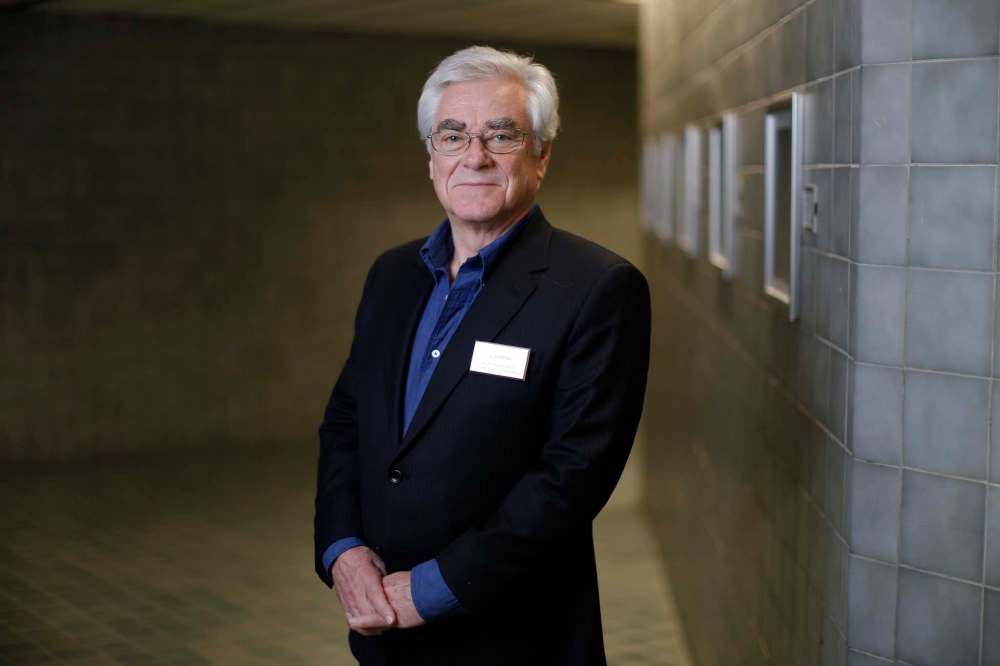Developing a new way to diagnose, treat diabetes
Dauphin-based biotech company hopes to create a preventative nutraceutical
Advertisement
Read this article for free:
or
Already have an account? Log in here »
To continue reading, please subscribe:
Monthly Digital Subscription
$0 for the first 4 weeks*
- Enjoy unlimited reading on winnipegfreepress.com
- Read the E-Edition, our digital replica newspaper
- Access News Break, our award-winning app
- Play interactive puzzles
*No charge for 4 weeks then price increases to the regular rate of $19.00 plus GST every four weeks. Offer available to new and qualified returning subscribers only. Cancel any time.
Monthly Digital Subscription
$4.75/week*
- Enjoy unlimited reading on winnipegfreepress.com
- Read the E-Edition, our digital replica newspaper
- Access News Break, our award-winning app
- Play interactive puzzles
*Billed as $19 plus GST every four weeks. Cancel any time.
To continue reading, please subscribe:
Add Free Press access to your Brandon Sun subscription for only an additional
$1 for the first 4 weeks*
*Your next subscription payment will increase by $1.00 and you will be charged $16.99 plus GST for four weeks. After four weeks, your payment will increase to $23.99 plus GST every four weeks.
Read unlimited articles for free today:
or
Already have an account? Log in here »
Hey there, time traveller!
This article was published 27/07/2021 (1577 days ago), so information in it may no longer be current.
For Dauphin-based SciMar Ltd., a company that believes it is leading a new paradigm in the research, diagnosis and treatment of diabetes, it is about more than just coming up with a magic pill.
It is doing that, but it’s also doing much more than that.
This fall alone, the company hopes to: release a nutraceutical that acts as a preventative against diabetes; form a social enterprise to institutionalize its Wellness Transformation Network concept to educate and advocate for a healthy lifestyle; and release a diagnostic tool that is more exacting than current diabetes diagnosis and can flag problems that could be as many as 20 years away.

As well, in the winter it will be launching a second Phase 2 clinical trial for a pharmaceutical therapeutic treatment that will help increase the release of a hormone produced by the liver. And it is working on producing a synthetic version of that hormone.
The existence and relevance of that hormone produced by the liver — Hepatic insulin-sensitizing substance (HISS), which SciMar is re-naming hepatalin — was discovered by Dr. Wayne Lautt, professor emeritus at the University of Manitoba’s department of pharmacology and therapeutics in 1996.
Lautt’s lab raised $17.5 million in research grants over the years and in 2009 he and his son Mick founded SciMar to hone in on the research with the intent of making sure it will have an impact for the close to 500 million people around the world who live with type 2 diabetes or pre-diabetes.
Unlike a typical biotech company that focuses on the development of a drug, Mick Lautt, SciMar’s CEO (and Wayne’s son) said the company is digging as deep as it can with the science that it discovered (and which is well protected with patents covering 10 countries including Canada and the U.S.)
“When you are leading new paradigm, you have to stop and make sure you’re bringing people along with you, show the data, show what you are doing, why it is different and why it is better,” he said.
But that means the company is simultaneously working through the regulatory process to release a diagnostic tool, a nutraceutical (a mix of three anti-oxidant vitamins that protects the cells against the ravages of poor diet that can lead to Type 2 diabetes) and a pharmaceutical therapeutic that could treat sick patients. It is also talking with some big pharma companies about the eventual production of a synthetic version of the hepatalin hormone.
The company has raised close to $10 million from Manitoba investors and is about to launch another more significant round of financing. Lautt said the company is keen to remain in Manitoba which is why it recently teamed up with the Winnipeg regulatory services provider, Source Nutraceutical Inc., to create a purpose-built clinical trial clinic to conduct SciMar’s trial that expects to include 60-to-100 patients.
Kimberley Hanson, executive director of federal affairs at Diabetes Canada, said they are well aware of the work SciMar is doing.
In addition to the fact that no one else is researching the connection that the liver functions have to the development of diabetes, Diabetes Canada welcomes the kind of community outreach SciMar is engaged in.
“We are always keen to see Canadian research into diabetes and SciMar’s work is an important part of… helping to advance our knowledge about the disease,” she said. “Diabetes Canada really appreciates the work that SciMar is doing in terms of the Wellness Transformation Network which is a great adjunct to the scientific research.”

Lautt said the company has a deep sense of responsibility to make sure it develops its research, diagnostic tool, preventative nutraceutical and therapy as thoroughly and patiently as possible.
“Everyone knows there is a missing link, otherwise diabetes would not be spiralling out of control with as much as 80 per cent of Indigenous youth, for instance, with pre or diabetic conditions,” he said. “We have found it — we have the science to show what it is and now we’re working to develop tools to get out to people to solve the problem.”
The research shows that the hepatalin hormone works alongside insulin, but Lautt said that while insulin is critical for Type 1 and Type 2 diabetes, SciMar’s science shows that for Type 2 diabetes the problem is not that the patients don’t have enough insulin.
The problem appears that they are missing hepatalin.
martin.cash@freepress.mb.ca
History
Updated on Tuesday, July 27, 2021 6:38 AM CDT: Adds photos

